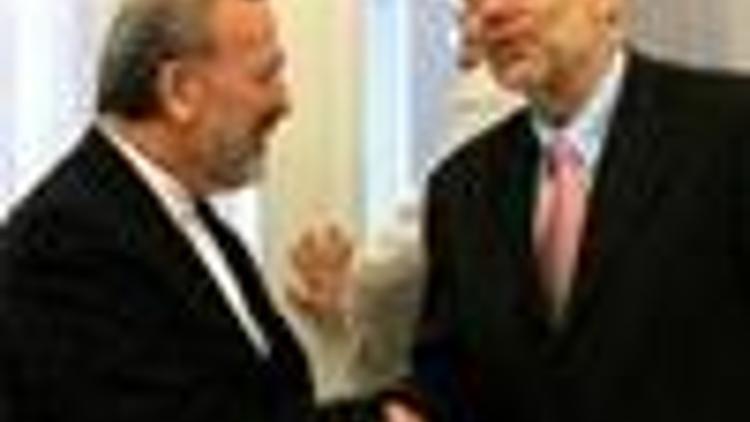Hurriyet English
Oluşturulma Tarihi: Temmuz 19, 2008 10:18
Iranian, European and US officials were to meet here Saturday for talks on Tehran's nuclear program with all sides voicing optimism that there would be a positive outcome. However diplomats have played down expectations of a breakthrough in the meeting. (UPDATED)
Saeed Jalili, Iran's top nuclear negotiator, met the European Union foreign policy chief Javier Solana to discuss a package of incentives offered by world powers to Tehran. In a major policy shift by Washington, U.S. Under-secretary of State William Burns will be at the talks. �
�
However an Iranian official said on Saturday his country will not freeze its uranium enrichment program in exchange for a pledge of no new U.N. Security Council sanctions. Those remarks cast a shadow on the meeting and fade optimism on the success of talks.
Keyvan Imani speaking to reporters shortly after the talks began, said there was "no chance" Iran would suspend enrichment.
US Secretary of State Condoleezza Rice on Friday said the decision to send Burns showed that Washington was "very serious" about diplomatic efforts despite the Bush administration's often harsh tone against Iran.
"This decision to send Undersecretary Burns is an affirmation of the policy that we have been pursuing with our European allies ... for some time now," Rice said.
"It is, in fact, a strong signal to the entire world that we have been very serious about this diplomacy and we will remain very serious about this diplomacy."
Washington has long said it will not negotiate with Iran until it first suspends uranium enrichment and insisted that Burns was travelling to Geneva to listen to Iran's response and not negotiate.
Nonetheless, it will be the first time that the United States, which severed relations with Iran in 1980 after the Islamic revolution, will be present in the negotiations aimed at persuading Tehran to freeze uranium enrichment.
Western countries suspect that Iran is secretly trying to develop the atomic bomb and the United Nations has slapped several sets of sanctions on Tehran over its refusal to halt enrichment.
Iran vehemently denies seeking nuclear weapons, insisting that its program is designed to provide energy for its growing population for the time when its reserves of fossil fuels run out.
Jalili said on Friday expressed optimism that the weekend talks would be constructive, provided Washington came with the right approach.
"What is important for us is with what approach they come to the talks. If it is with a constructive approach, and that they refrain from past mistakes, then for sure we will have constructive talks," he was quoted as saying by the official IRNA news agency before leaving Tehran for Geneva.
Jalili, who heads Iran's Supreme National Security Council, is accompanied on this trip by Ali Bagheri, the council's deputy head in charge of international affairs.
Foreign Minister Manouchehr Mottaki on Friday welcomed as "positive" the US presence at the Geneva talks.
The US participation is "a new positive approach," Mottaki said after talks in Ankara with his Turkish counterpart Ali Babacan.
"I hope this progress (in the format) will also reflect on the content of the talks," he said. "If the negotiations continue in this way, I hope there will be a positive outcome."
Also present will be representatives from the P5 plus one group: Britain, China, France, Russia, the United States -- the five permanent members of the UN Security Council -- and Germany.
NO BREAKTHROUGH
Mottaki said, "Please do not rush," in Turkish, when a journalist asked whether Tehran could accept to give up uranium enrichment works in return of lifting the United Nations' sanctions.
Similar view was echoed by Western diplomats, who cautioned against expecting anything other than minor concessions. "We are not expecting any movement. The Iranians are waiting for a new [U.S.] president next year," one Western diplomat told the Guardian.
Washington insists it will not negotiate with Iran, as it has with North Korea, until Tehran halts enriching and reprocessing of uranium. However Iran insists peaceful uranium enrichment works are its right and rejects demands to halt it.
Turkey, an ally of the U.S. and western neighbor of Iran, had sped up its efforts to ease the tension. The U.S. President's top security advisor had visited Turkey last week a day before Mottaki. Turkey said it would have a role in the process.


